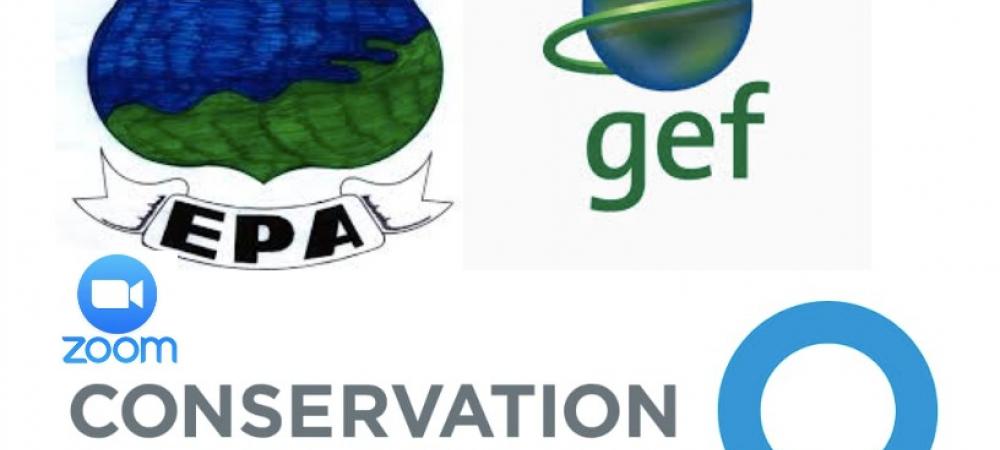
The Environmental Protection Agency of Liberia (EPA) in collaboration with Conservation International (CI) has ended an eight-hour virtual workshop on Liberia’s National Greenhouse Gas (GHG) and the Measurement, Reporting and Verification system (MRV) amidst the ongoing Corona Virus (COVID-19) pandemic in the country.
The workshop held on Tuesday, July 7, 2020, was organized by the Department of Multilateral Environmental Agreements (MEAs) at the EPA, with funding from the Global Environment Facility (GEF) - that was established to help tackle the planet's most pressing environmental problems, as part of the CBIT; supports developing countries to build institutional and technical capacity, both pre-and post- 2020, to meet enhanced transparency requirements as defined in Article 13 of the Paris Agreement. CBIT has three aims; strengthening national institutions for transparency-related activities in line with national priorities, providing relevant tools, training and assistance for meeting the provisions stipulated in Article 13 of the Paris Agreement and assist in the improvement of transparency overtime.
The well-organized virtual workshop also received technical support from AETHER for which the agency appreciates their support. AETHER is an international organization that is at the forefront of Greenhouse Gas (GHG) and air quality emissions calculation and review, in international, national and local authority markets.
Speaking at the start of the training that was conducted via Zoom – a web-based video conferencing tool with a local, desktop client and a mobile application that allows users to meet online, the Coordinator of the Multilateral Environmental Agreements (MEAs) of the EPA, Mr. Benjamin S. Karmorh, Jr. welcomed participants and noted that the workshop aimed at introducing project objectives and timelines, providing initial capacity building training on GHG inventories and institutional arrangements as well as gathering information from stakeholders to inform pilot-testing exercise. He also admonished participants to utilize the training and see it as an added advantage to build national capacities and enhance a vibrant GHG/MRV system. He ended by stating that through this means, Liberia’s capacity to report on its obligation to the UNFCCC would be better streamlined.
“The CBIT is one way through which the GEF is supporting the successful implementation of the Paris Agreement and its key pillars of transparency and accountability. For example, CBIT activities dovetail with the GEF’s critical provision of support to non-Annex I Parties to fulfill their reporting obligations under the United Nations Framework Convention on Climate Change (UNFCCC), including National Communications and Biennial Update Reports,” he noted.
It can the recalled that, based on the Paris Agreement requested, GEF is to support the establishment of the CBIT through voluntary contributions during GEF-6 and future replenishment cycles. Following COP 21, the GEF established the CBIT within one year due to high levels of donor support and successful engagement with countries and other key stakeholders.
During the just ended eight hours long training that brought together 75 participants from several Government Ministries and Agencies which include; Ministry of Mines and Energy, Transport, Agriculture, Forestry Development Authority, including the University of Liberia and the Monrovia City Cooperation had different level of commitments available to them.
Participants were drilled through different areas of specialism to include; MRV- Institutional Arrangement and MRV systems; Energy- Combustion of Fuels and Refineries; Industry – Industrial Processes and Procedures; Agriculture- Crop and Livestock management; Land Management- Land Management including Forest; and importantly, Waste- Human Waste Management Practices as well as the Environmental Knowledge Management System.
Every participant was asked to choose and commit to one of these specialisms. The groups subsequently participated in interactive breakout sessions during the online stakeholder workshop. This categorization was is in line with the international reporting provided by the Intergovernmental Panel on Climate Change (IPCC).
At the end of the training, participants expressed appreciation to the organizers for the training workshop that was facilitated by several environmentalists from Government line Ministries and Agencies as well as other international working groups, and thematic mentors from Aether.



